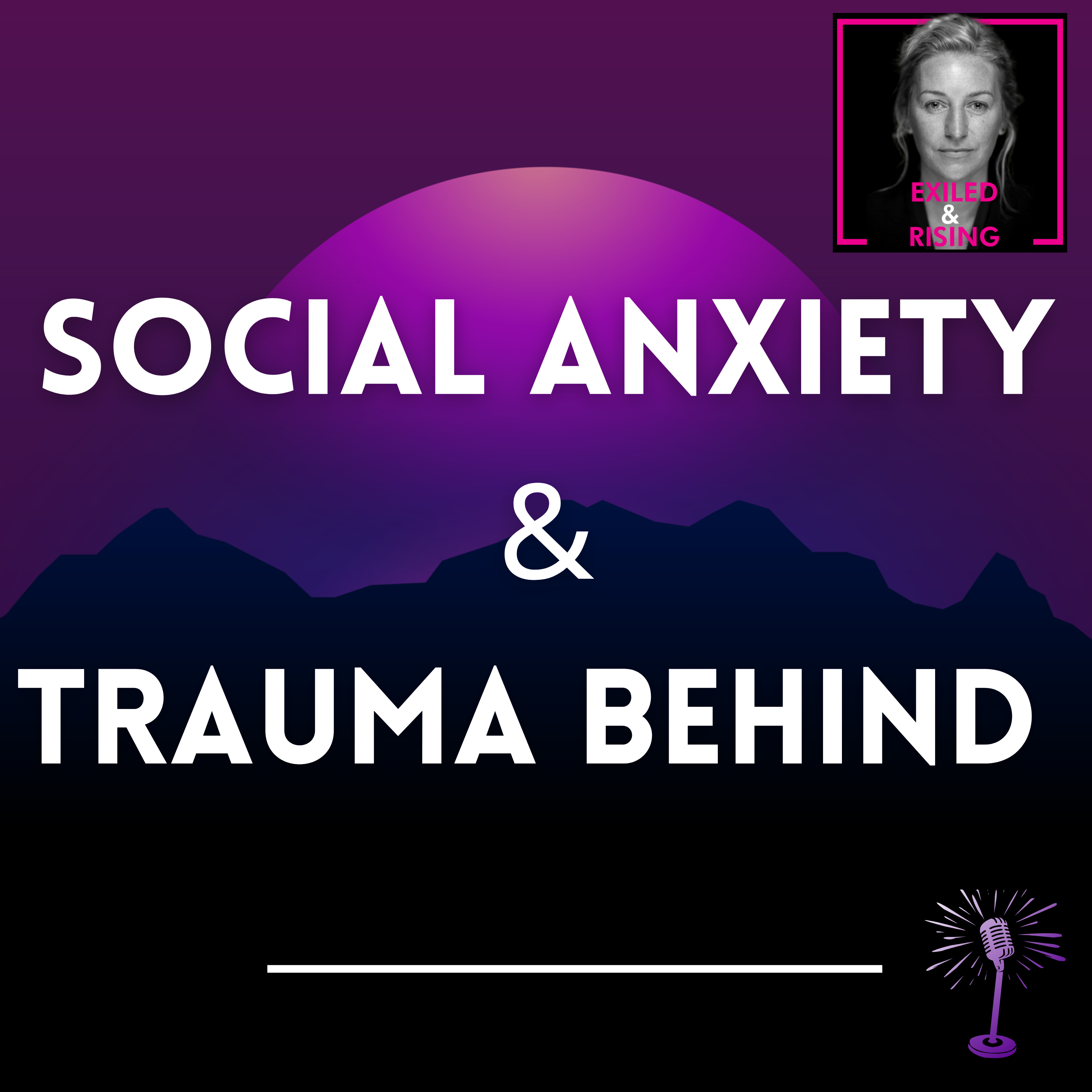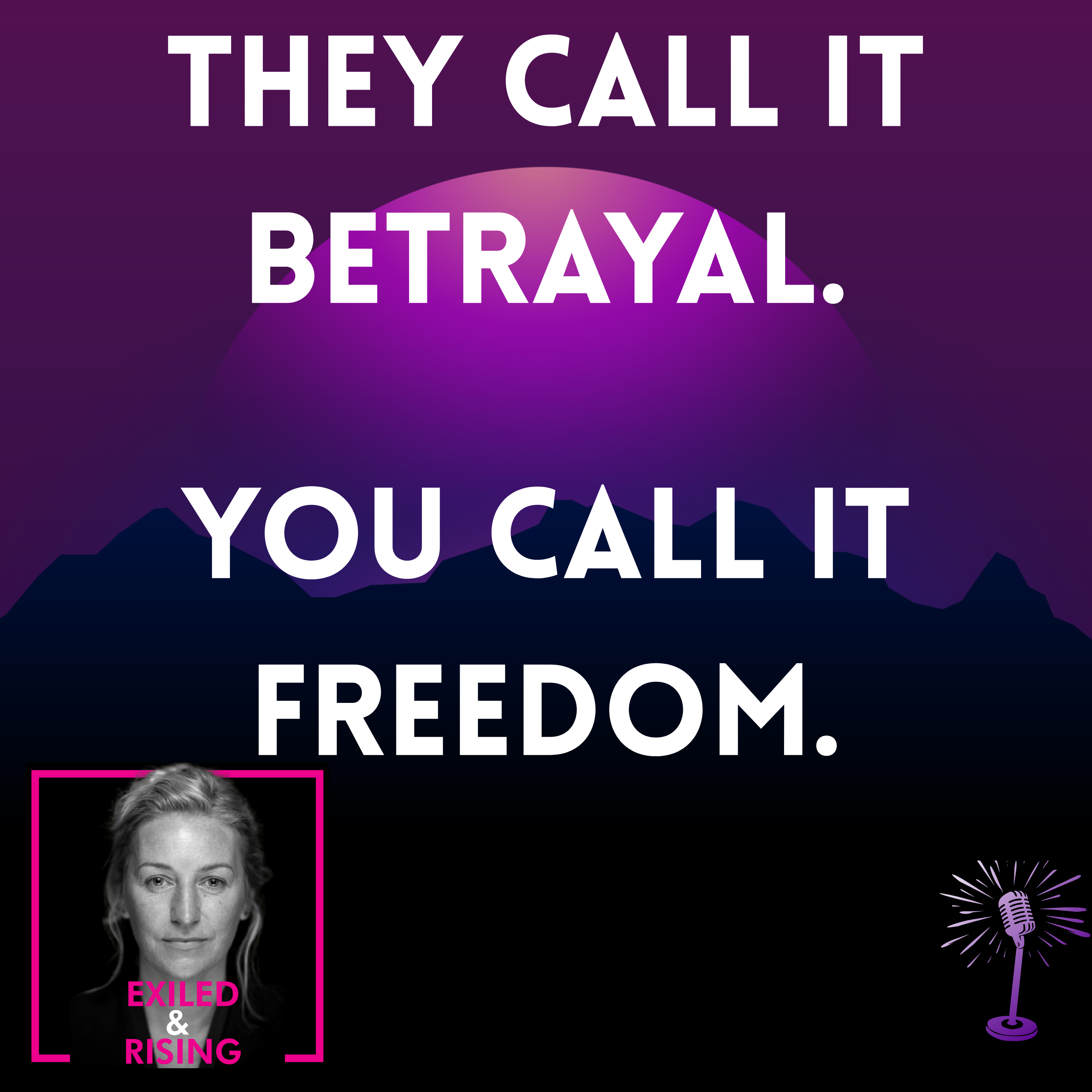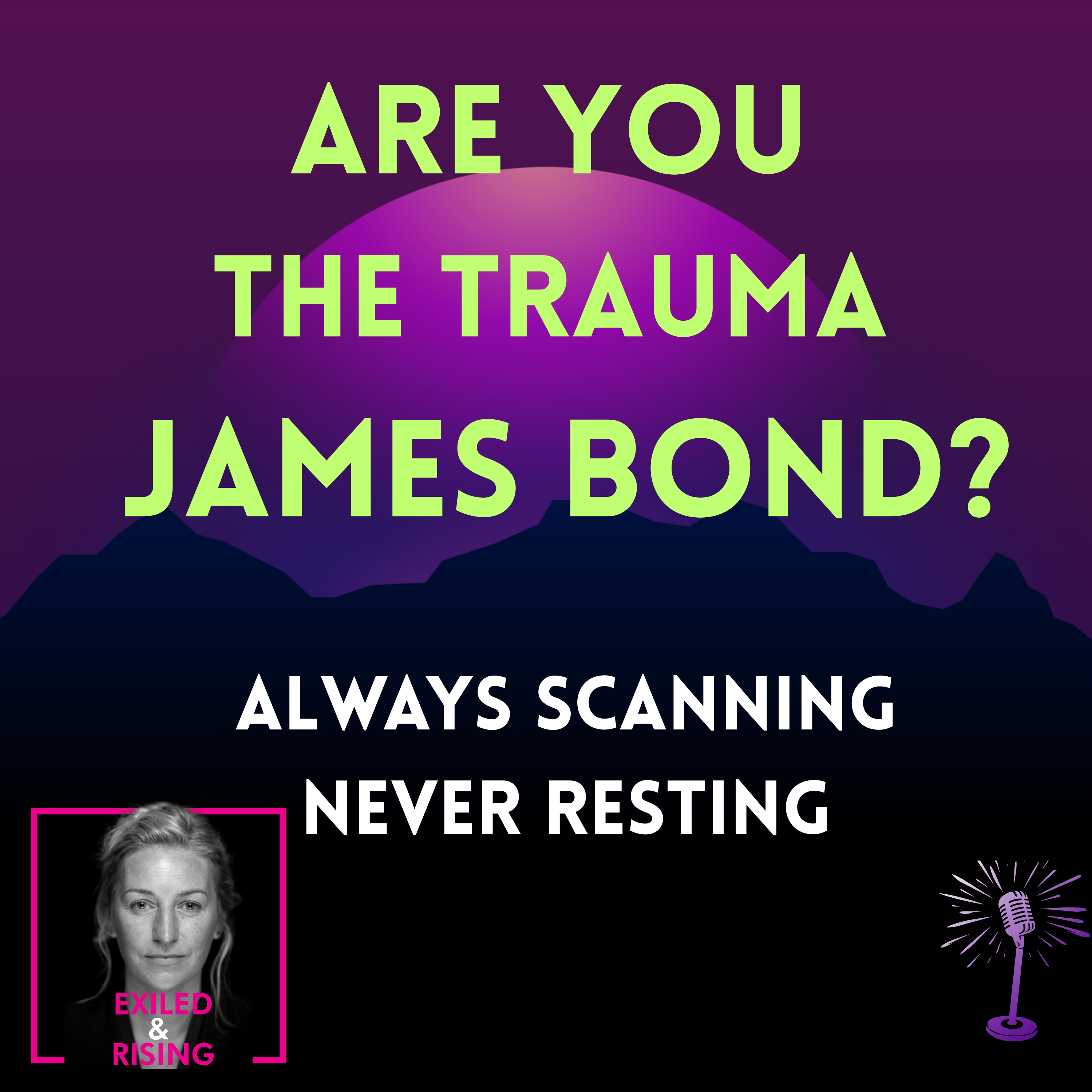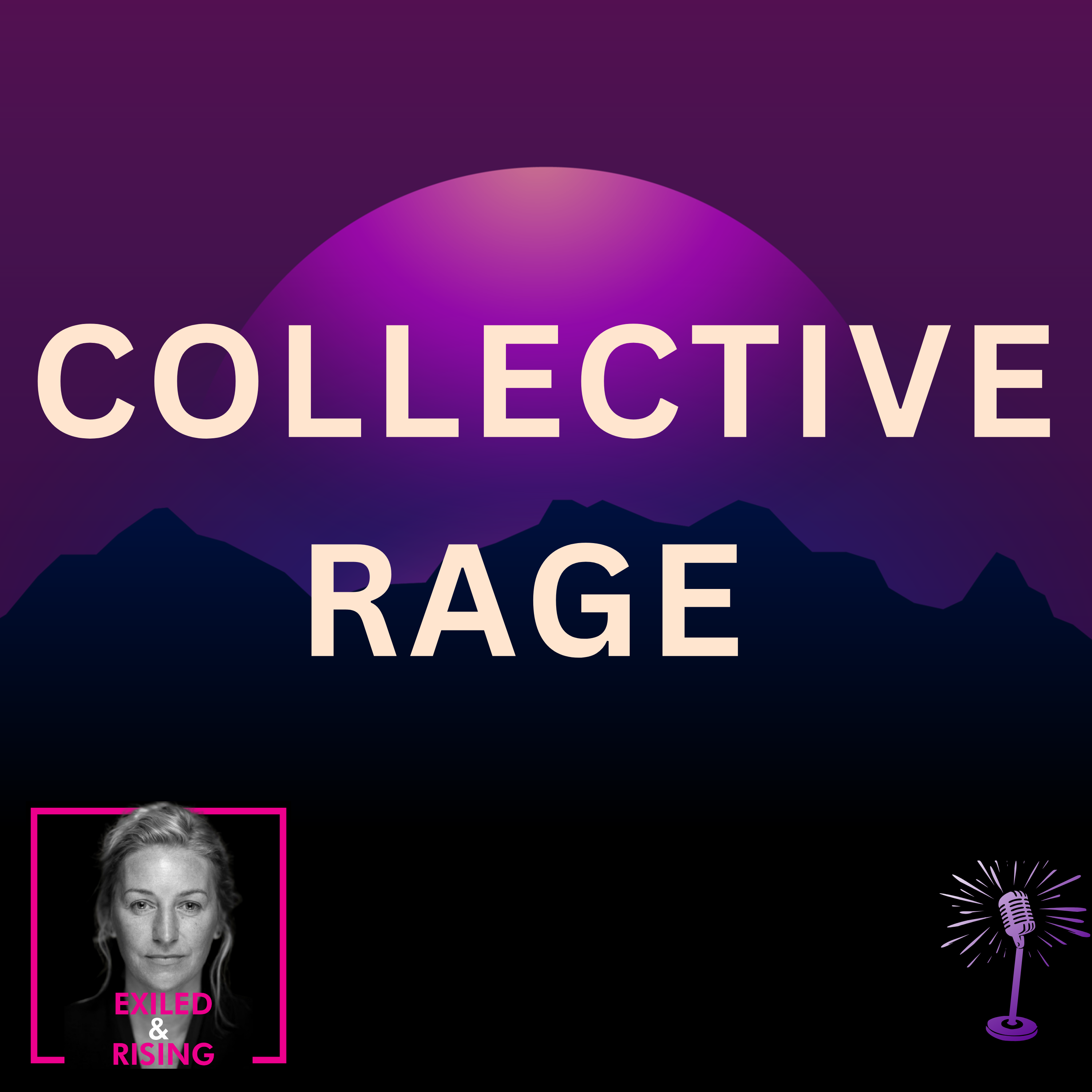Show Notes
Social anxiety is not just shyness—it's a battle within your body, a fight for survival in a world that constantly demands you to be seen. But what if I told you that the very same body that holds your fear also holds the key to your healing?
Social anxiety is often misunderstood as just being shy or introverted, but it’s far deeper than that—it’s an internalized fear shaped by past traumas and rejection. Yet, healing from social anxiety starts not in the mind, but in the body, where our nervous systems hold the memories of those experiences.
Ana Mael breaks down the deep, visceral connection between trauma and social anxiety. You might be in a safe space now, but your nervous system still remembers the past—and it's holding you back from experiencing the connection and belonging you deserve.
Episode Description: In this raw, unfiltered episode of Exiled and Rising, Ana Mael takes a deep dive into the roots of social anxiety. It’s not just about being introverted or shy—it’s about your body holding onto memories of past pain, trauma, and shame. The episode explores how these old memories continue to inform your nervous system, causing panic, discomfort, and fear in social settings even years after the trauma occurred.
Ana discusses how your survival brain prioritizes protecting you from harm, but often misfires, keeping you in a loop of social withdrawal and anxiety. But here's the truth: You don’t have to live in fear of being rejected, shamed, or judged. Your need for connection, community, and belonging is essential—and it's safe to reach for it.
You Will Learn:
-
How your body remembers past social shame, triggering anxiety in present-day interactions.
-
The survival instinct behind social anxiety: your brain’s desperate attempt to protect you from past harm.
-
Why being seen and heard is a basic human need—and how your anxiety is disconnecting you from that need.
-
How the trauma of past rejection or humiliation affects your ability to connect with others, even in safe environments.
-
The empowering message: The people who harmed you don’t get to deprive you of the love and connection you deserve.
Impact on Trauma Healing and Nervous System: Ana's somatic approach emphasizes the connection between trauma healing and nervous system regulation. By acknowledging and releasing the trauma held in the body, you can begin to break free from the grip of anxiety and fear. Ana’s healing philosophy integrates trauma justice, recognizing the systemic factors that contribute to emotional harm and providing actionable tools for recovery.
Quotes to Emphasize in the Episode:
-
“Your survival brain has one important job: to protect you from harm. But when it misinterprets current experiences as threats, you stay stuck in the past.”
-
“Social anxiety isn’t just about being shy or nervous—it’s about your body’s deep-seated fear of rejection and harm, and that fear is rooted in past trauma.”
-
“The people who harmed you don’t get to deprive you of all the good, genuine, and kind people who would welcome a connection with you.”
Listen to this episode if:
-
You experience social anxiety and feel like your past keeps you stuck in patterns of isolation.
-
You're ready to understand the root cause of your anxiety—what's really triggering you, and why.
-
You're looking for a way to break free from fear and reclaim your right to connection and belonging.
Resources Mentioned:
-
The Trauma We Don’t Talk About (Ana’s Book) - Page 71, Second Volume
Link to purchase: https://amzn.to/4iiJGW7
Support the Podcast:
-
Subscribe and follow to stay connected with Ana’s episodes that dive into the deepest truths of trauma healing and personal sovereignty.
-
❤️ Donate to keep the podcast ad-free and focused on deep, transformative content. Support here: https://exiledandrising.castos.com/donate?_gl=1*bzjxxx*_gcl_au*MjQ0MDcwNjYwLjE3Mzk5MTg3MD
Join the Exiled & Rising Premium Membership for exclusive access to deeper insights, unfiltered discussions, and practical trauma recovery tools.
-
Join here : https://exiledandrising.supercast.com/
Why This Podcast Matters Now
In 2025, as political authoritarianism rises, minority voices are policed, and trauma is repackaged as self-help content, Exiled and Rising offers something different:
A body-based rebellion.
A trauma-informed resistance.
A spiritual space not governed by shame.
Ana names what mainstream mental health and spiritual spaces often avoid: the systemic, structural, and ancestral roots of trauma. Her work reclaims prayer, healing, and voice as tools of dignity, defiance, and liberation.
“If you have been silenced… Welcome.”
Exiled and Rising
From Wounds to Resistance. From Trauma to Resilience.
About Ana Mael
Ana Mael is a Somatic Experiencing Therapist (SEP), Nervous System Specialist, and founder of the Somatic Trauma Recovery Center. She specializes in working with individuals who have experienced complex trauma, war trauma, systemic oppression, exile, and patriarchal abuse.
Born into war and displacement, Ana survived three wars and years of statelessness, navigating forced migration, identity erasure, and profound loss. These experiences did not just shape her perspective—they forged her expertise. She knows, firsthand, the physiological cost of survival and the monumental resilience of the human nervous system.
Ana’s work is grounded in cutting-edge neuroscience, attachment theory, polyvagal regulation, and embodied trauma healing. She is known for:
- Reframing dissociation as a survival ally rather than a pathology, allowing clients to honor their nervous system’s intelligence rather than fight it.
- Naming and deconstructing the wound of non-existence, helping people reclaim space in a world that conditioned them to disappear.
- Bringing depth, honesty, and scientific rigor to trauma recovery, challenging mainstream healing models that ignore the complexity of survival.
Her work is sought after by therapists, trauma survivors, and those who feel exiled from their own bodies, histories, and communities.
Through Exiled and Rising, Ana is not just educating—she is leading a movement for those who were never meant to survive but did. And now, it’s time to rise.



